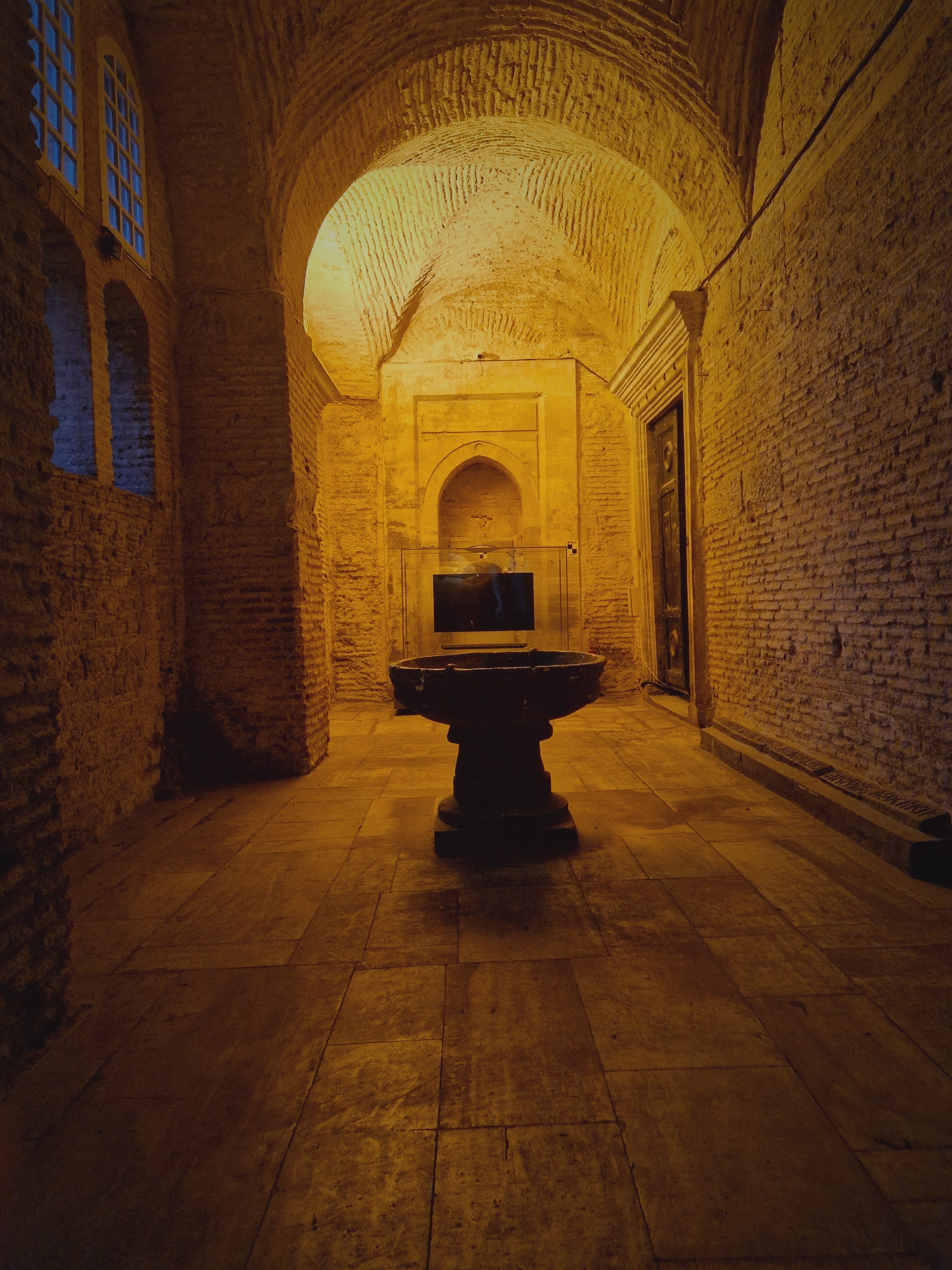:haram:
Edit: I created these 2 by butchering an existencial comics comic
https://imgur.com/a/xBZnzC6
Anyone ever feel like he doesn't get enough credit? Everyone's crying about cultural Marxism but this dude actually joined the revolution in '48 and published half of Marx's works as well as his own.
theres literally no marx without engels. homeboy paid his bills and shit
Happy birthday com.
Some recommended reading
The Origin of the Family, Private Property and the State
Ludwig Feuerbach and the End of Classical German Philosophy
Some choice quotes
The bourgeoisie turns everything into a commodity, hence also the writing of history. It is part of its being, of its condition for existence, to falsify all goods: it falsified the writing of history. And the best — paid historiography is that which is best falsified for the purposes of the bourgeoisie.
-Engels, Notes for the “History of Ireland”
In reality, however, the state is nothing but a machine for the oppression of one class by another, and indeed in the democratic republic no less than in the monarchy; and at best an evil inherited by the proletariat after its victorious struggle for class supremacy, whose worst sides the proletariat, just like the Commune, cannot avoid having to lop off at the earliest possible moment, until such time as a new generation, reared in new and free social conditions, will be able to throw the entire lumber of the state on the scrap-heap.
Of late, the Social-Democratic philistine has once more been filled with wholesome terror at the words: Dictatorship of the Proletariat. Well and good, gentlemen, do you want to know what this dictatorship looks like? Look at the Paris Commune. That was the Dictatorship of the Proletariat.
But the socialism of earlier days was as incompatible with this materialistic conception as the conception of nature of the French materialists was with dialectics and modern natural science. The socialism of earlier days certainly criticised the existing capitalistic mode of production and its consequences. But it could not explain them, and, therefore, could not get the mastery of them. It could only simply reject them as bad. But for this it was necessary (1) to present the capitalistic method of production in its historical connection and its inevitableness during a particular historical period, and therefore, also, to present its inevitable downfall; and (2) to lay bare its essential character, which was still a secret, as its critics had hitherto attacked its evil consequences rather than the process of the thing itself. This was done by the discovery of surplus-value. It was shown that the appropriation of unpaid labour is the basis of the capitalist mode of production and of the exploitation of the worker that occurs under it, that even if the capitalist buys the labour-power of his labourer at its full value as a commodity on the market, he yet extracts more value from it than he paid for; and that in the ultimate analysis this surplus-value forms those sums of value from which are heaped up the constantly increasing masses of capital in the hands of the possessing classes. The genesis of capitalist production and the production of capital were both explained.
-AntiDuhring
We therefore reject every attempt to impose on us any moral dogma whatsoever as an eternal, ultimate and for ever immutable ethical law on the pretext that the moral world, too, has its permanent principles which stand above history and the differences between nations. We maintain on the contrary that all moral theories have been hitherto the product, in the last analysis, of the economic conditions of society obtaining at the time. And as society has hitherto moved in class antagonisms, morality has always been class morality; it has either justified the domination and the interests of the ruling class, or ever since the oppressed class became powerful enough, it has represented its indignation against this domination and the future interests of the oppressed. That in this process there has on the whole been progress in morality, as in all other branches of human knowledge, no one will doubt. But we have not yet passed beyond class morality.
-AntiDuhring
As the state arose from the need to keep class antagonisms in check, but also arose in the thick of the fight between the classes, it is normally the state of the most powerful, economically ruling class, which by its means becomes also the politically ruling class, and so acquires new means of holding down and exploiting the oppressed class. The ancient state was, above all, the state of the slave-owners for holding down the slaves, just as the feudal state was the organ of the nobility for holding down the peasant serfs and bondsmen, and the modern representative state is the instrument for exploiting wage-labor by capital. Exceptional periods, however, occur when the warring classes are so nearly equal in forces that the state power, as apparent mediator, acquires for the moment a certain independence in relation to both. This applies to the absolute monarchy of the seventeenth and eighteenth centuries, which balances the nobility and the bourgeoisie against one another; and to the Bonapartism of the First and particularly of the Second French Empire, which played off the proletariat against the bourgeoisie and the bourgeoisie against the proletariat. The latest achievement in this line, in which ruler and ruled look equally comic, is the new German Empire of the Bismarckian nation; here the capitalists and the workers are balanced against one another and both of them fleeced for the benefit of the decayed Prussian cabbage Junkers. [German:Krautjunker, translated as ‘country squire’, but with pejorative overtones.]
Further, in most historical states the rights conceded to citizens are graded on a property basis, whereby it is directly admitted that the state is an organization for the protection of the possessing class against the non-possessing class. This is already the case in the Athenian and Roman property classes. Similarly in the medieval feudal state, in which the extent of political power was determined by the extent of landownership. Similarly, also, in the electoral qualifications in modern parliamentary states. This political recognition of property differences is, however, by no means essential. On the contrary, it marks a low stage in the development of the state. The highest form of the state, the democratic republic, which in our modern social conditions becomes more and more an unavoidable necessity and is the form of state in which alone the last decisive battle between proletariat and bourgeoisie can be fought out – the democratic republic no longer officially recognizes differences of property. Wealth here employs its power indirectly, but all the more surely. It does this in two ways: by plain corruption of officials, of which America is the classic example, and by an alliance between the government and the stock exchange, which is effected all the more easily the higher the state debt mounts and the more the joint-stock companies concentrate in their hands not only transport but also production itself, and themselves have their own center in the stock exchange. In addition to America, the latest French republic illustrates this strikingly, and honest little Switzerland has also given a creditable performance in this field. But that a democratic republic is not essential to this brotherly bond between government and stock exchange is proved not only by England, but also by the new German Empire, where it is difficult to say who scored most by the introduction of universal suffrage, Bismarck or the Bleichroder bank. And lastly the possessing class rules directly by means of universal suffrage. As long as the oppressed class – in our case, therefore, the proletariat – is not yet ripe for its self-liberation, so long will it, in its majority, recognize the existing order of society as the only possible one and remain politically the tall of the capitalist class, its extreme left wing. But in the measure in which it matures towards its self-emancipation, in the same measure it constitutes itself as its own party and votes for its own representatives, not those of the capitalists. Universal suffrage is thus the gauge of the maturity of the working class. It cannot and never will be anything more in the modern state; but that is enough. On the day when the thermometer of universal suffrage shows boiling-point among the workers, they as well as the capitalists will know where they stand.
The state, therefore, has not existed from all eternity. There have been societies which have managed without it, which had no notion of the state or state power. At a definite stage of economic development, which necessarily involved the cleavage of society into classes, the state became a necessity because of this cleavage. We are now rapidly approaching a stage in the development of production at which the existence of these classes has not only ceased to be a necessity, but becomes a positive hindrance to production. They will fall as inevitably as they once arose. The state inevitably falls with them. The society which organizes production anew on the basis of free and equal association of the producers will put the whole state machinery where it will then belong–into the museum of antiquities, next to the spinning wheel and the bronze ax.
-The Origin of the Family, Private Property and the State



